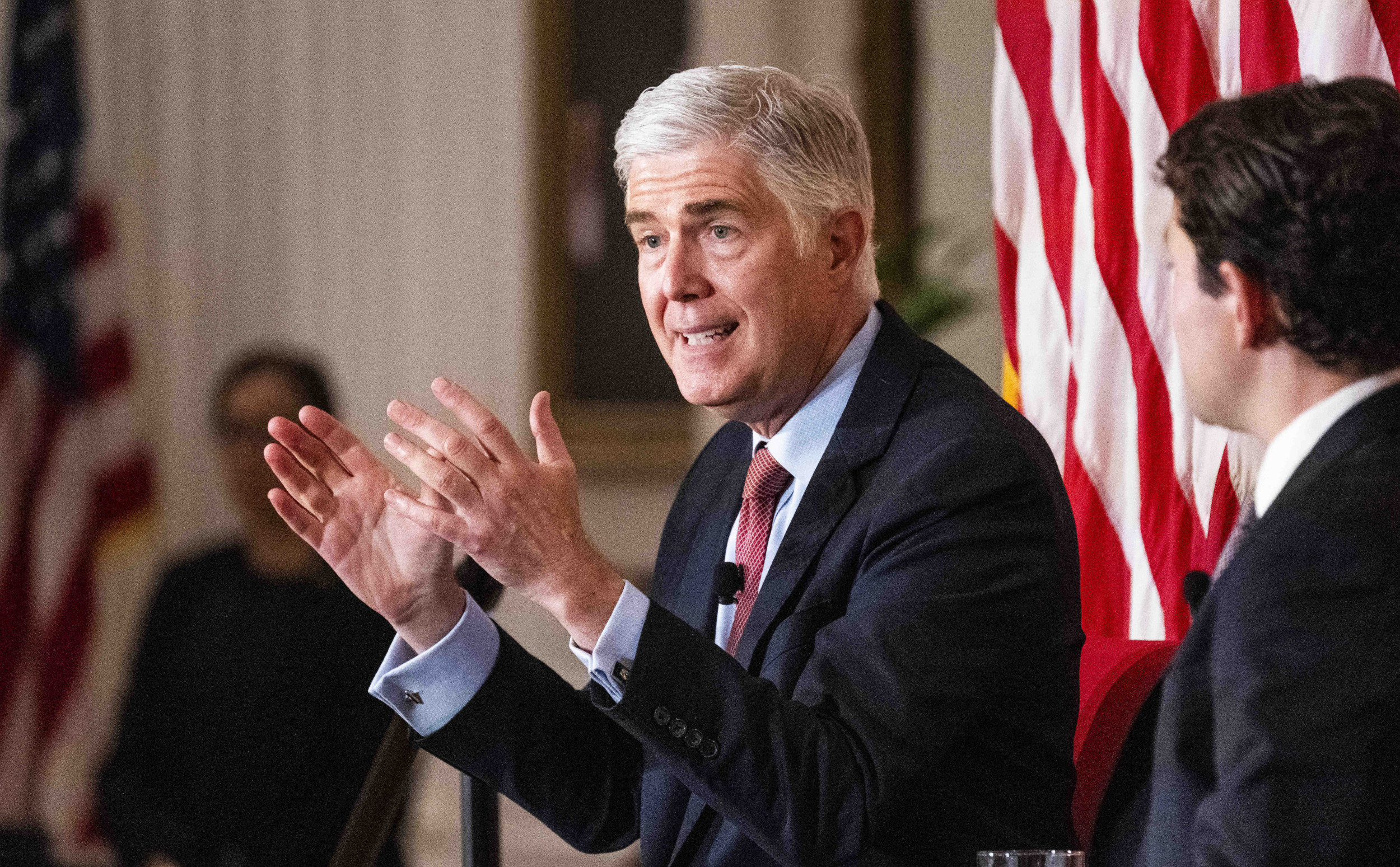
Justice Neil Gorsuch sided with the Supreme Court‘s liberal justices in a case decided on Wednesday.
Why It Matters
Justices Gorsuch and Amy Coney Barrett broke from the conservative majority to join Justices Sonia Sotomayor, Elena Kagan and Ketanji Brown Jackson in the ruling. Barrett has previously split from her fellow conservative justices in a majority opinion this term, but it is the first time Gorsuch has done so.

Paul Bersebach/The Orange County Register via AP
What To Know
The case, Medical Marijuana v. Horn, centers around the civil section of the Racketeer Influenced and Corrupt Organizations Act (RICO) Act. The law states that “any person injured in his business or property” by violation of the RICO Act may sue for damages.
The Court decided that the phrasing of the law does not prevent individuals from recovering damages resulting from personal injuries. The Court majority opinion was delivered by Barrett.
“The ‘business or property’ requirement operates with respect to the kinds of harm for which the plaintiff can recover, not the cause of the harm for which he seeks relief,” Barrett wrote.
Justice Clarence Thomas issued his own dissent, while Justice Brett Kavanaugh delivered a dissenting opinion joined by Chief Justice John Roberts and Justice Samuel Alito.
“A plaintiff cannot circumvent RICO’s categorical exclusion of personal-injury suits simply by alleging that a personal injury resulted in losses of business or property, thereby converting otherwise excluded personal-injury suits into business- or property-injury suits,” Kavanaugh wrote.
What is Medical Marijuana v Horn?
Douglas Horn was working as a commercial truck driver in 2012 when he was involved in a crash that left him with back and shoulder injuries. He continued to experience pain after trying medication and physical therapy.
Horn then began using a remedy infused with CBD called “Dixie X.” He was selected for a random drug screening by his employer a few weeks later. While the product claimed it is “0% THC,” the test detected THC in his system.
Horn was fired after he refused to complete a substance abuse program. He then sued the company that sells “Dixie X,” Medical Marijuana, Inc., under the RICO Act. Horn alleged that Medical Marijuana, Inc. was committing mail and wire fraud through its false advertising and that those crimes constituted a “pattern of racketeering activity.”
Who is Neil Gorsuch?
Gorsuch was appointed to the Court by President Donald Trump in 2017. He filled the vacancy left by the death of Antonin Scalia in 2016.
Prior to serving on the Supreme Court, Gorsuch was a judge on the U.S. Tenth Circuit Court of Appeals and a principal deputy associate attorney general.
What People Are Saying
Barrett, in a majority opinion: “For example, if the owner of a gas station is beaten in a robbery, he cannot recover for his pain and suffering. But if his injuries force him to shut his doors, he can recover for the loss of his business. In short, a plaintiff can seek damages for business or property loss regardless of whether the loss resulted from a personal injury.”
Kavanaugh, in a dissent: “The aftermath of the Court’s opinion could be quite a mess, as courts grapple with RICO personal-injury cases where the question is what losses qualify as business or property losses.”
What Happens Next
The case was remanded for further proceedings consistent with the Court majority’s opinion.
Do you have a story that Newsweek should be covering? Do you have any questions about this story? Contact LiveNews@newsweek.com.




